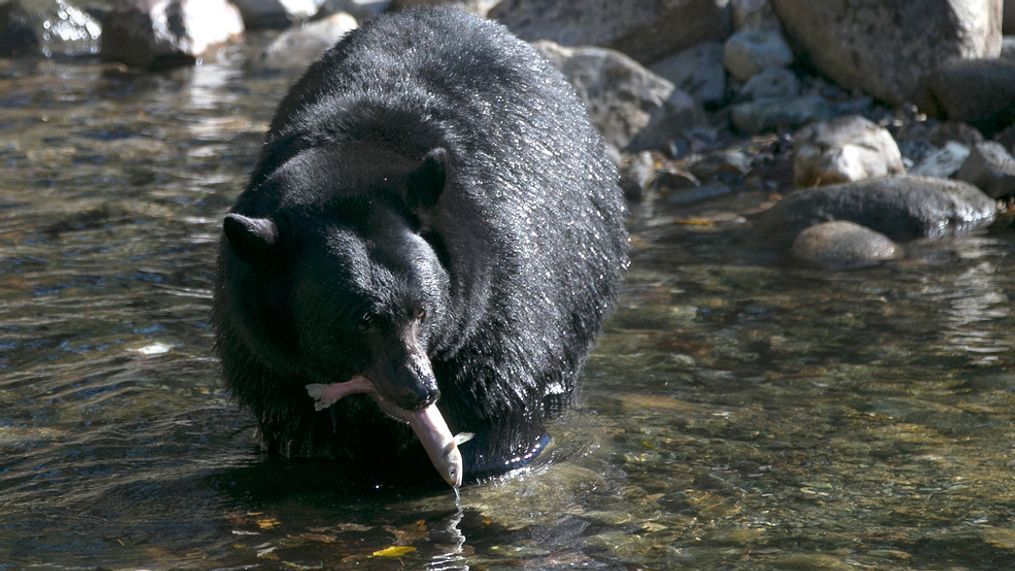The Bear necessities? You can find them now in vending machines

WASHINGTON (TND) — Japan’s vending machines, like a lot of the public technology and culture in the country, is full of tastes, colors and ideas that may seem strange at first. Vending machines in the country dispense everything from cream to insect snacks and dumplings to ramen. A new vending machine located in the northern prefecture of Akita is taking all of that a step further: it is stocked full of wholesome, nutritious and fresh bear meat.
The vending machine is set up at a train station in the town of Semboku, but the popularity of its bear meat — which sells for 2,200, or $16.50, per (roughly) half a pound — has the curious and the carnivorous putting in mail requests from as far away as Tokyo. For context, that’s about as far as New York City is from Washington, D.C. The animal protein is also advertised as a regional specialty and the vendor featured a mix of lean and fatty meat when it was set up in November of 2022, according to the Mainichi Shimbun newspaper.
The meat was provided by local hunters who were permitted to kill a certain number during last year’s regular hunting season, the paper continued. The machine was erected by a local restaurant named Soba Goro saw a chance to intrigue and entice tourists with the ursine opportunity.
While the idea of eating bear may seem a supreme oddity in a world where chicken breasts and ground beef are available by the dozens of pounds in every supermarket, the consumption of ursine flesh is an American tradition. It also ties into American proclivities for overconsumption, as black bears in this country where overhunted to the brink of extinction and it has only been in the last two years that populations have truly rebounded.
Then future-President Teddy Roosevelt said the meat (of young bears) was not unlike pork, something Frank Forester added to in the second volume of his “Field Sports of the United States, and British Provinces, of North America."
“The flesh of the [black] bear is savoury, but rather luscious, and tastes not unlike pork. It was once so common an article of food in New-York as to have given the name of ‘Bear Market’ to one of the principal markets of the city," Forester wrote.
"[Bear meat] tastes clean, and it doesn't get tough, even when cold. It can be enjoyed in a wide range of dishes, from stew to steaks," a Soba Goro representative told the Mainichi. The restaurant says it sells 10-15 packs of meat from the machine per week.
There are some nutritional advantages to bear meat as well, freelance writer Brent Crane notes in an article for “Men’s Health.”
“A 3-ounce serving of bear meat has 1 milligram more iron than the daily iron requirement for men, according to USDA data,” Crane writes. “That's 9 milligrams, compared to just 3 in the same serving size of lean beef. It also has 2 grams more zinc.”
